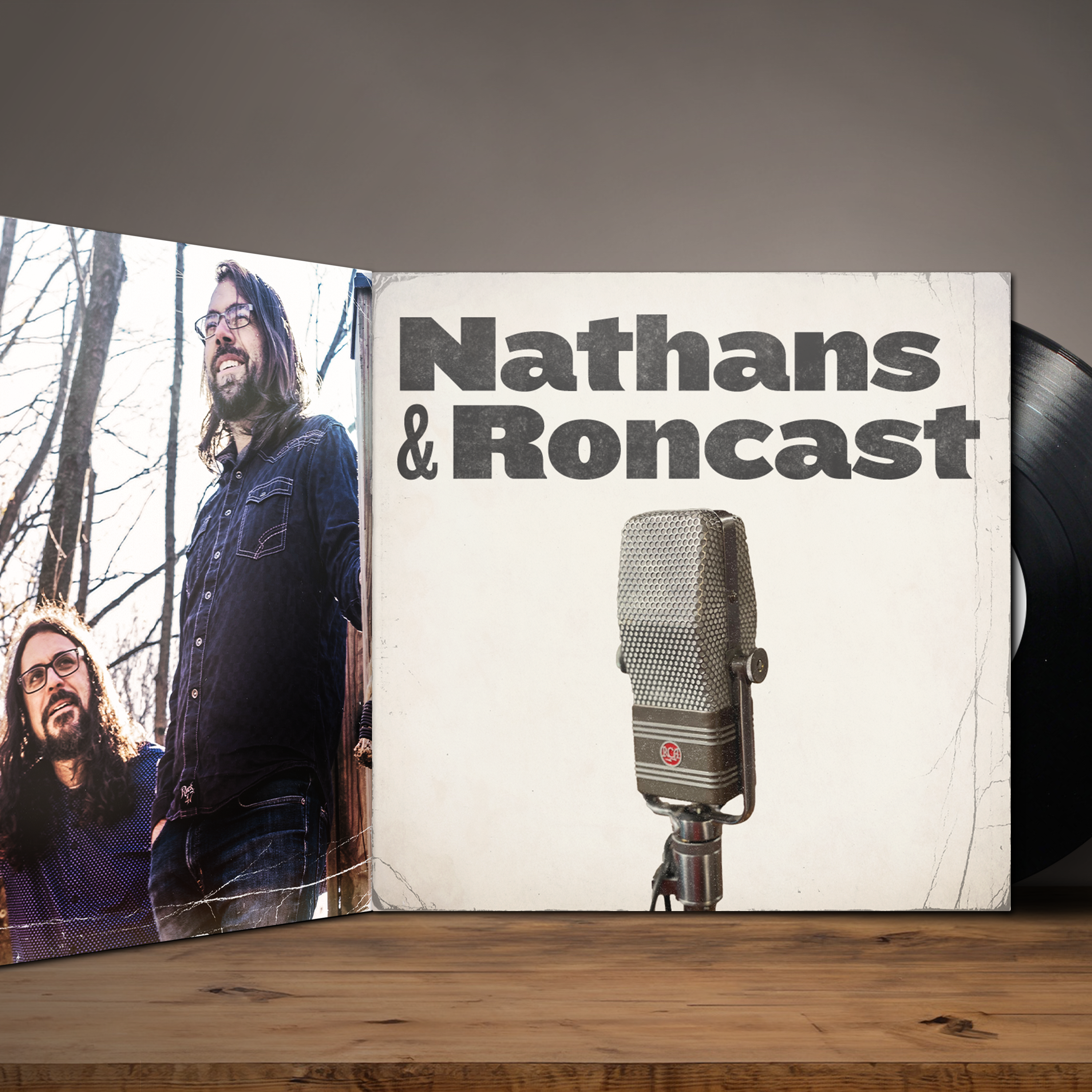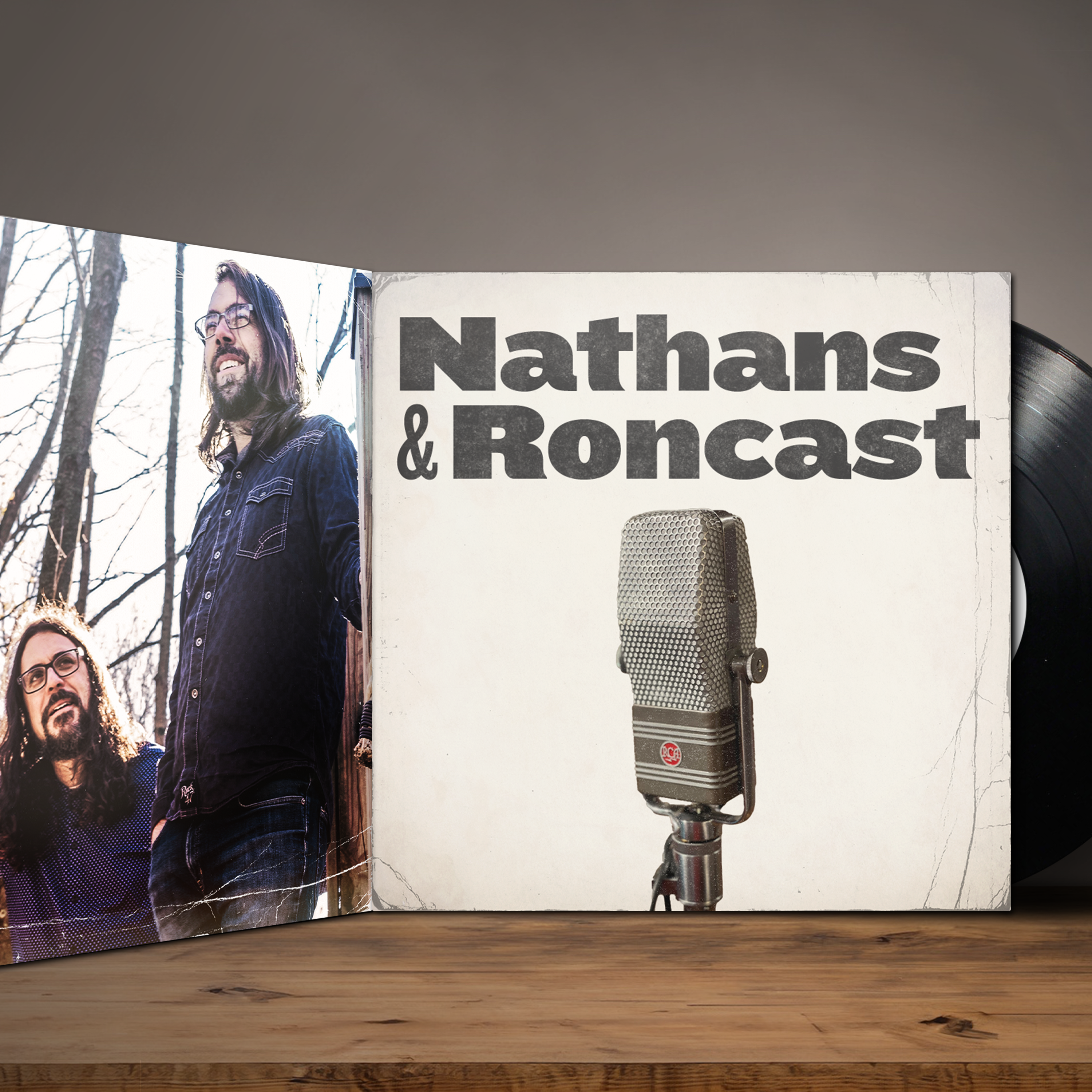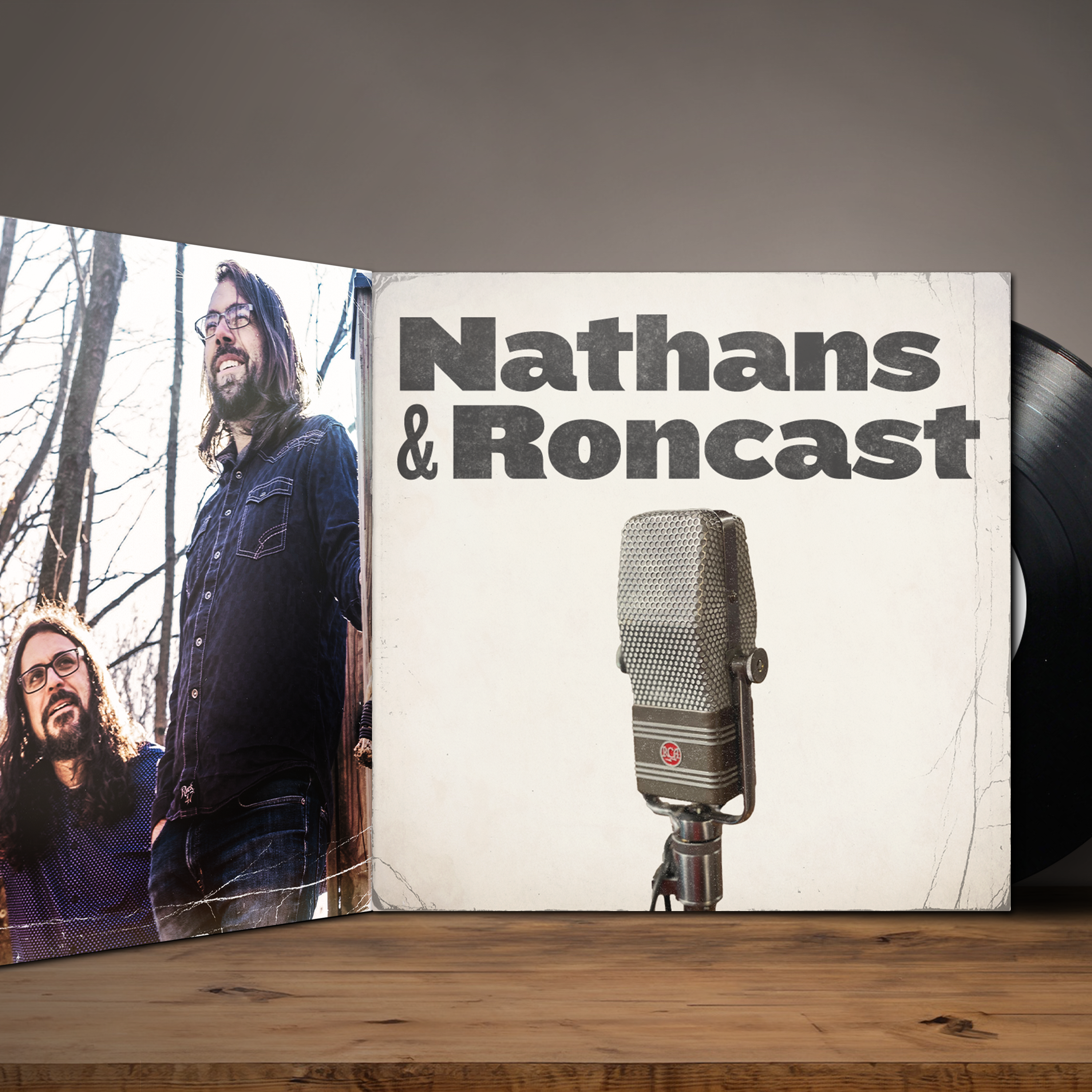Episode Transcript
[00:00:00] Speaker A: Foreign.
Welcome to the Nathan's and Roncast, where we explore the art and craft of songwriting. I'm your host, Michael G. Ronstadt, and today we have a special guest in this little tiny mini episode featuring the song September Sad, written by my good friend Nisa Ricciardi. And. And this song was on an album that I recorded with Nisa.
The album's called Blue Bayou, and we recorded it in Philadelphia at Morningstar Studios with Glenn Barrett at the console and Dave Schoner at the console. And we created a project that featured a lot of standards that you usually don't hear. And then we featured two original jazz tunes. And then we had two. Two covers that you wouldn't expect, and one of them was Blue Bayou, which is kind of a creepy version. And then we also had Mother Nature's son mixed up with Nature Boy. But what I wanted to dive into was the song September Sad. So I have Nisa here. Nisa, hello.
[00:01:13] Speaker B: Hi.
[00:01:15] Speaker A: Thanks for joining me on the Nathan's and Ron cast. I'm on the road, so we're doing this via informal iPhone interview. And when I'm on the road, I like to keep it informal because I want people to get to know the people that are important to me by just not feeling like, oh, it's a huge production. Right. So I want to talk about your songwriting craft. You wrote a jazz tune called September Sad.
[00:01:41] Speaker B: Yes.
[00:01:42] Speaker A: But I also know you write a bunch of pop music and folk music, and so I'm curious what your approach is when you're doing the two different styles. But before we do that, you can talk about your background. What inspires you in this music world? What made you want to be a musician?
[00:01:59] Speaker B: Oh, goodness.
Great questions.
Lots of loaded answers, I should say. And first of all, thanks for having me so much. Well, I think the key for me is when I'm writing a pop song, it is more of an intuitive thing, sort of like the inner ear that I'm listening for, because I came up through post Beatles, melodic pop, and listening to a lot of artists like Squeeze and Crowded House and of course, the Beatles.
So a lot of that is sort of almost at this point in my DNA.
So when I'm writing a pop song, I have a lot of those influences right at my fingertips. And when I'm writing a jazz song, it is more of a craft rather than an intuitive experience.
The song you mentioned, September Sad, I actually wrote that as an exercise in a jazz composition class that I was taking at nyu.
[00:03:10] Speaker A: That's surprising, because sometimes school composition exercises are the things you. You write do not play ever.
That's what I put on a lot of my school compositions. But, yeah. So it made the cut.
[00:03:24] Speaker B: Well, yeah. Well, it was interesting that it. That it did make the cut because the. The assignment was to write a song for someone else to sing.
So I wasn't writing this as something for my voice.
And the artist that I had in mind was the incomparable Diane Reeves, who is just phenomenal. But her vocal range is different from mine.
So the key that I wrote it in was a minor third above where we ended up doing the song.
I had to actually transpose my own work in order for me to be able to sing it properly.
[00:04:06] Speaker A: That happens, you know, that happens even to. When you write a song for yourself and time passes by.
I feel like. Or do I have the remnants of a cold today?
No, but, you know, whatever it is.
Well, I think it's a beautiful song and it has the way it communicates, even if you like, I listen to music first, lyrics second. So it communicates to me musically because of the melody and how you are expressing the words. But tell me about writing the lyrics and what kind of drove that.
[00:04:45] Speaker B: Sure. Well, the song was, for me, an expression of how it feels for me at the end of the summer. I'm a summer girl. I always have been. So there's a certain sadness that I feel even in September, even though it's still beautiful weather and there's still a lot of outdoor activities that you can do in September. But that summer feeling of being able to just walk out the door with no shoes on and shorts and all of that is.
Is disappearing pretty quickly. It's about that. But it's also kind of almost a representation also of going into a depressive kind of episode.
[00:05:30] Speaker A: It does definitely carry that weight when you listen to the lyric. But I think it also reminisces on some of the classic jazz tunes because they talk about a heavy but simple concept, you know, it could be something like losing a loved one, you know, or you could go to something of lynchings, you know, with strange fruit. So it's like you go down the whole rabble.
[00:05:58] Speaker B: But I would never compare myself to.
[00:05:59] Speaker A: Billie Holiday, but I think of the fact that, like, in a jazz tune, you have to say it basically in a stanza or two. You can't rely on verse, verse, chorus, verse.
So what do you do to take that whole feeling of winter coming, the sadness of summer ending and just cold weather coming in?
How do you boil that down into one statement that takes people it helps people understand where you're at without. I mean, how do you take out the fluff, I guess?
[00:06:35] Speaker B: Well, I've always been something of an emotional songwriter.
By that, I mean, I come at topics, even ones that are, say, political or environmental or causes that I believe in. I always come at them from the emotional standpoint.
So what I did with September Sad is I inserted imagery that, to me, was more expressive of the emotional values of what it feels like when, you know, the summer is over and that winter is coming and that all of these things that you were able to do are coming to an end. You know, swimming in the ocean, going, walking in the creek, at the park, whatever it is.
So that part of it is where I try to, like, just emotionally capture the feeling of that whole ending of something.
[00:07:41] Speaker A: Yeah. And it's so effective. But when we play the song at the end of the episode, I think you'll understand what we're talking about.
You can find the album, I believe, on all the platforms. It's called Blue Bayou, and it's Richardi Ronstadt. Can you spell your last name for us?
[00:08:00] Speaker B: Absolutely. It's R I, C, C I, A.
[00:08:04] Speaker A: R, D, I. Richardi and Nisa and I have worked together for a long time, and I'm so glad that we made an album.
[00:08:13] Speaker B: Yes.
[00:08:14] Speaker A: And we continue to promote it. And the Nathan's and Ron cast, I think, is one of the perfect platforms to highlight songwriting craft.
And this album highlights the craft of songwriting, including the originals that we share with you. And if you really like jazz and you want to hear something that's a little bit different, but still really palatable and relatable because it's still familiar. I still walk bass lines, but it's cello and voice. And we feature a lot of other musicians. Matt Cappy on trumpet, we have Paolo Batista on percussion.
Yeah. So we have Jay Davidson on road.
[00:08:53] Speaker B: Chuck Stab.
[00:08:54] Speaker A: Chuck Stab, who is Melody Gardeau's drummer.
It is quite a cast of musical guests, and they come in and add just the right flavor. Nothing too much, nothing too little. So find our album online.
I'm a collaborator for life. I love collaborating with people and I love making albums that I would want to listen to.
So without any further delay, Nisa, thank you so much for taking.
[00:09:22] Speaker B: Thank you, Michael. It's been a pleasure.
[00:09:24] Speaker A: And. And we're going to play September Sad from the Ricciardi and Ronstadt album Blue Bayou, written by Nisa Ricciard.
[00:09:51] Speaker C: I woke up today To a chill in the air and thought I was still in a dream but sunlight shook my slumbers bare Leaving everything free Free to be seen from my window I see all the leaves on the durb and the glass has collected a frost Only shadows of summer I left for to yearn since the substance most surely is lost when the sun sinks south and the windy willows weep no more Children are about and the flowers go to sleep There I'll be September sad There goes me September sad Every gust of the wind comes up colder than last and southward bound geese fail the sky seems an uncaring winter is following Fast turning sunshine and warmth to life when the sun sinks south and the windy willows weep no more Children are about to and the flowers go to sleep There I'll be September sad There goes me September sad There I'll be September sad There goes me September Foreign.
[00:13:36] Speaker A: Thank you for listening to the Nathan's and Roncast. If you want to find out more information about Aaron Nathans and Michael Ronstadt, go to nathans and ronstadt.com that's r o n s t a d t dot com and if you have any questions for us, you can find us on all the podcast places. You can even find our music on all the other digital platforms. If you have information or questions that you want to find out about me Michael G. RONSTADT, go to michaelronstadt.com and again, you're listening to the Nathan's in Roncast. We hope you have a wonderful week and thank you for being a part of our family and listening every week with us. Because without you we wouldn't exist. Thank you so much. Have a good day.


